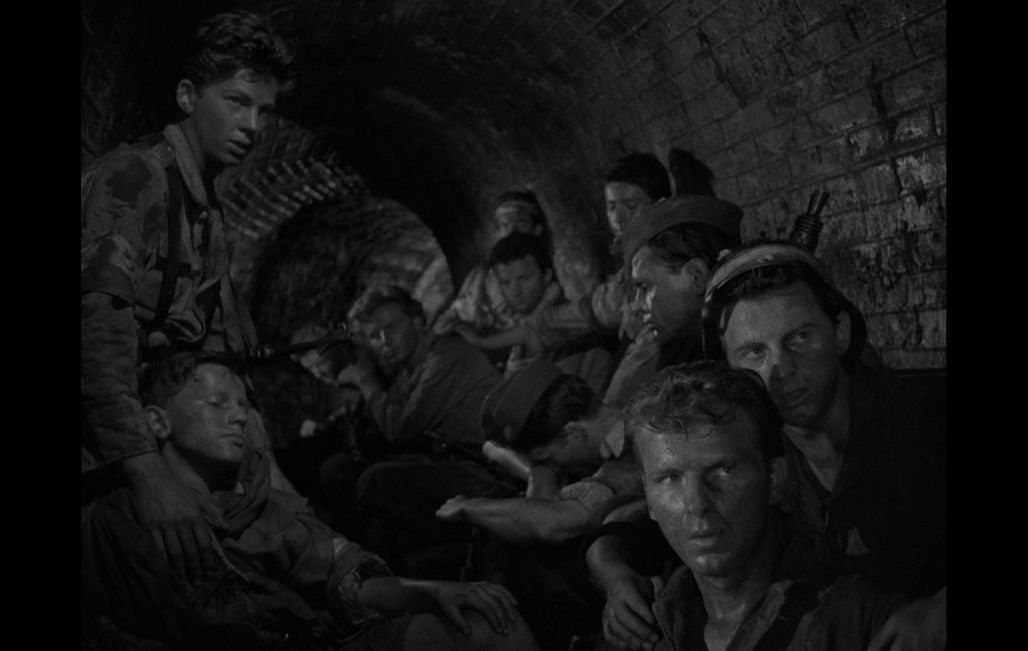
Kanal (They Loved Life), a portrait of Poland’s resistance

In 1957, Polish director Andrzej Wajda took home the Jury Prize for Kanal (They Loved Life), a film in which he evokes the Warsaw Uprising in 1944 and denounces the Soviet Union’s inaction. The film, which portrays Polish history and the war as experienced by the filmmaker, is being screened in Cannes Classics in its restored version.
Kanal (They Loved Life), an epic depicting the last Polish resistance against the occupier in Warsaw, tells the story of a group of exhausted soldiers who are surrounded by the Germans and forced to escape through the sewers to reach the city center, where the fighting still continues. All of them have a story, all are afraid to die, and they are stubbornly determined to survive their journey through sewers that seem more and more like a trap.
Filmed in a particularly expressive black and white, the film plunges us into the soldiers’ experience for a close-up feel of both their courage and despair. Realistic and romantic, Kanal (They Loved Life) is a testimony not only to the military resistance, but also to the love that prevails in times of war.
A spectacular success in Western Europe, Kanal drew attention to a Polish cinema in full reform, and propelled Andrzej Wajda onto the international scene. The film is the second part of his war trilogy after the 1955 Pokolenie (A Generation), the story of a young man living under German occupation who joins a communist organization after falling in love with a member of the resistance.
The filmmaker thus imposed himself as a leading figure in war cinema, and closed out his trilogy in 1958 with Popiól i diament (Ashes and Diamonds), in which a young idealistic militant is forced to flee after having killed a communist leader by mistake. In this film, Andrzej Wajda depicts the historical and ideological conflict illustrated previously in his first two films.


